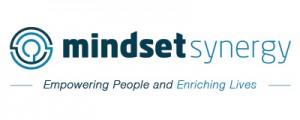Factsheet HSV99 – Mental Health Support
Article from: http://Factsheets.dva.gov.au
Purpose
This Factsheet outlines mental health services for the veteran and ex-service community.
When do I seek mental health support?
If you are worried about how you are feeling or coping, then help is available. You may be
feeling sad, anxious, or angry. You may be troubled by memories, drinking too much, not
sleeping or having difficulties relating to family or friends. It’s not unusual to have these
feelings, or to experience problems after stressful events or during stressful periods in life.
If these symptoms persist and get in the way of you enjoying life or meeting your
responsibilities, there are steps you can take.
If you need help, there are people and services who can provide support and treatment.
How to take action
• Call the Veterans and Veterans Families Counselling Service (VVCS) on 1800 011 046.
VVCS provides free and confidential, nation-wide counselling and support to eligible
serving and ex-serving members, and their families, affected by war and service-related
mental health and well-being conditions. For help, to learn more, or to check eligibility,
call 1800 011 046 or visit the VVCS website at www.vvcs.gov.au
• Talk to your GP. Your GP may provide treatment or refer you to a psychologist,
psychiatrist or social worker if needed. If you are a former serving member, you are
entitled to a comprehensive health assessment from your GP. The assessment will help
your GP diagnose and identify early mental or physical health conditions and to treat or
refer appropriately to other services. A Medicare rebate is available for this assessment.
• Go online. Visit the At Ease website at-ease.dva.gov.au to access videos, self-help
tools, mobile apps, and advice about how to seek professional help.
How can I get access to mental health treatment?
If you have a Gold Card, then your mental health treatment is paid for by DVA when you
use your card. If you have a White Card for a mental health condition, then your mental
health treatment for that condition is paid for by DVA when you use your card.
In some circumstances, DVA can pay for mental health treatment without the need to
establish that a mental health condition is related to service. You may be eligible for a
White Card for diagnosed PTSD, depression, anxiety disorders or alcohol and substance
use disorders – whether or not these conditions are caused by your service.
If you are not eligible for DVA’s mental health support, then you may be able to access
mental health support via the Medicare system. Through its Better Access initiative, the
Government provides Medicare rebates for up to 10 sessions per calendar year with
appropriately qualified mental health practitioners. See your GP to discuss your eligibility.
More information on Better Access can be found on the Department of Health’s website at
www.health.gov.au
What is covered by DVA’s mental health treatment?
If you have a Gold Card or a White Card for a mental health condition, then a wide range
of mental health treatments are available to you. This includes treatment from GPs,
psychologists, social workers (mental health), occupational therapists (mental health)
psychiatrists, or hospital services for those who need it (including trauma recovery – PTSD
programmes).
Start by talking to your GP.
Who pays for mental health treatment?
The Australian Government pays for mental health treatment for eligible members of the
veteran and ex-service community.
What if my mental health condition was caused by my service?
If you consider that your mental health condition was caused by your defence service, you
can submit a claim to have liability accepted by DVA. If accepted, you may be entitled to
additional support and services. A link must be established between your condition and an
event during your service for compensation to be provided. The level of compensation is
then assessed by determining the degree of impact the condition has on you.
For service before 1 July 2004, you will need to complete form D2582 Claim for Disability
Pension and/or Application for Increase in Disability Pension. For service on or after 1 July
2004, you need to complete form D2051 Claim for Liability and/or Reassessment of
Compensation.
Claims can also be submitted through the Online claim page of the DVA website at
www.dva.gov.au/onlineservices/ocl/oclhome.html
Disclaimer
The information contained in this Factsheet is general in nature and does not take into
account individual circumstances. You should not make important decisions, such as
those that affect your financial or lifestyle position on the basis of information contained in
this Factsheet. Where you are required to lodge a written claim for a benefit, you must take
full responsibility for your decisions prior to the written claim being determined. You should
seek confirmation in writing of any oral advice you receive from DVA.
Related Factsheets
• DP18 Making a Claim/Applying for an Increase in Disability Pension
• HSV61 Repatriation Health Card – for Specific Conditions (White Card)
• MCS13 How to claim benefits under the Safety Rehabilitation and Compensation Act
1988 (SRCA)
• MRC25 How to make a claim under the Military Rehabilitation and Compensation Act
2004
• VCS01 Veterans and Veterans Families Counselling Service (VVCS)
• HSV109 Non-Liability Health Care
Related Forms
• D0400 Authority to Release Personal Information Treatment of Depressive/Anxiety
Disorder
• D0401 Diagnostic Report Anxiety Disorder or Depressive Disorder
• D2020 Claim for Rehabilitation and Compensation
• D2049 Injury or Disease Detail Sheet
• D2051 Claim for Liability and/or Reassessment of Compensation
• D2582 Claim for Disability Pension and/or Application for Increase in Disability Pension
• TL219.1 Application for Health Care in Respect of Post Traumatic Stress Disorder
(PTSD)
More Information
DVA General Enquiries
Metro Phone: 133 254 *
Regional Phone: 1800 555 254 *
Email: GeneralEnquiries@dva.gov.au
DVA Website: www.dva.gov.au
Factsheet Website: http://Factsheets.dva.gov.au
* Calls from mobile phones and pay phones may incur additional charges.



 Contact us on
Contact us on 
 Facebook
Facebook Twitter
Twitter Linkedin
Linkedin
